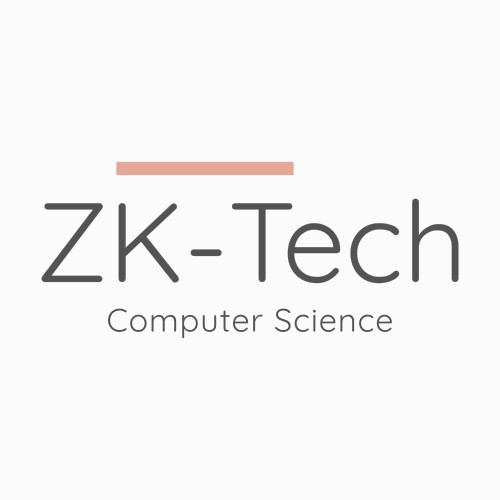Introduction:
In today's digital age, the efficient and secure sharing of data is vital for organizations of all types. Traditional data-sharing methods often fall short in terms of security and transparency. This is where blockchain technology comes to the rescue. In this blog post, we will explore how blockchain technology is revolutionizing data sharing for organizations.
Understanding Blockchain Technology
What is Blockchain?
At its core, blockchain is a distributed ledger technology. Imagine a digital ledger or database that records transactions across a vast network of computers. What makes it extraordinary is its decentralized nature. Instead of relying on a single, central authority (like a bank), blockchain transactions are verified and recorded by a network of participants (nodes).
How It Works
Data in Blocks: Transactions are grouped into blocks. Each block contains a set of transactions, along with a unique code called a cryptographic hash.
Decentralization: These blocks are not stored on a central server but are duplicated and distributed across all nodes on the network. This decentralized structure ensures that there's no single point of control or failure.
Consensus Mechanism: To validate and record a transaction, there's a need for consensus among the network's nodes. This typically involves solving complex mathematical puzzles or using other methods like Proof of Work (PoW) or Proof of Stake (PoS).
Immutability: Once a transaction is added to the blockchain, it's incredibly challenging to alter. This immutability is what makes blockchain highly secure.
Key Characteristics of Blockchain
Security: Blockchain uses advanced cryptography to secure data, making it resistant to tampering and fraud.
Transparency: All participants on the network can see the transactions, promoting trust and accountability.
Efficiency: Smart contracts, self-executing agreements with predefined rules, can automate processes, reducing the need for intermediaries and streamlining operations.
Trustworthiness: The trust is built into the system, eliminating the need for a central authority, like a bank, to verify transactions.
Applications Beyond Cryptocurrency
While Bitcoin was the first successful application of blockchain, the technology's potential goes far beyond digital currencies. Here are some real-world use cases:
Supply Chain Management: Blockchain can be used to track the production, shipment, and delivery of goods. This transparency helps reduce fraud, verify authenticity, and enhance trust in the supply chain.
Healthcare: Patient records can be stored securely, and healthcare providers can access the most up-to-date information with the patient's consent. This reduces errors and streamlines care.
Voting Systems: Blockchain can be used to create secure and transparent voting systems, preventing election fraud and ensuring accurate results.
Real Estate: Property transactions can be streamlined and made more transparent by recording land registries on a blockchain, reducing disputes and fraudulent claims.
Intellectual Property: Artists, writers, and creators can protect their intellectual property rights using blockchain, which records and timestamps their work.
The Benefits of Blockchain in Data Sharing
In a rapidly evolving digital landscape, the need for secure and efficient data sharing has become paramount. As data continues to serve as the lifeblood of businesses and organizations, ensuring its integrity, privacy, and accessibility is crucial. Enter blockchain technology, a revolutionary innovation that has emerged as a powerful solution for data sharing. In this article, we'll explore the myriad benefits of blockchain in data sharing and its potential to reshape the way we exchange information.
1. Unprecedented Security:
Blockchain technology is renowned for its unparalleled security. Each block in a blockchain contains a unique cryptographic reference to the previous block, creating an immutable chain of data. This means that once data is recorded on the blockchain, it becomes nearly impossible to alter or tamper with. This level of security is particularly advantageous in sensitive data sharing scenarios, such as medical records, financial transactions, or intellectual property protection.
2. Enhanced Data Integrity:
Blockchain ensures data integrity by maintaining a transparent and verifiable ledger. Participants in the network can verify data accuracy independently, reducing the need for intermediaries and increasing trust. This integrity is invaluable in fields like supply chain management, where the origin and journey of products can be accurately tracked through blockchain technology, minimizing fraud and errors.
3. Privacy and Control:
Blockchain empowers individuals with control over their data. With data sharing solutions built on blockchain, individuals can grant or revoke access to their information as they see fit. This is especially significant in an era where data privacy is a growing concern. Users can have peace of mind knowing that their personal information remains secure and accessible only to authorized parties.
4. Reduced Intermediary Costs:
Traditional data-sharing processes often involve intermediaries, adding costs and delays to transactions. Blockchain eliminates the need for middlemen by establishing trust through smart contracts. These self-executing contracts automate the exchange of data and payments, streamlining processes and reducing overhead expenses.
5. Transparency and Trust:
Blockchain's transparent nature fosters trust among participants in a network. All data transactions are recorded in a public ledger that can be audited, which makes it easier to hold parties accountable. This transparency is especially beneficial in industries where trust is paramount, such as the legal sector, where contracts and legal documents can be stored securely on the blockchain.
6. Cross-Industry Applicability:
Blockchain's versatility extends its benefits to various sectors. From healthcare and finance to logistics and education, the technology has the potential to disrupt traditional data-sharing methods and bring about efficiencies that were previously unimaginable.
7. Resilience and Availability:
Blockchain networks are decentralized and distributed across a vast number of nodes. This architecture makes them resistant to single points of failure, ensuring data availability and accessibility even in the face of network disruptions or cyberattacks. This resilience is a game-changer for mission-critical data sharing in industries like disaster response and emergency services.
Real-World Applications of Blockchain Data Sharing
Blockchain technology, renowned for its security and transparency, has ventured far beyond its initial application in cryptocurrencies. In the real world, it's proving to be a game-changer in a multitude of industries. Let's explore the fascinating real-world applications of blockchain data sharing that are reshaping the way we exchange information and conduct business.
1. Supply Chain Management:
Blockchain is revolutionizing the way supply chains operate. In industries such as food, pharmaceuticals, and luxury goods, it enables end-to-end transparency and traceability. Companies can track the journey of products from source to consumer, ensuring authenticity and reducing fraud. For instance, Walmart uses blockchain to trace the origin of its food products, enhancing food safety and quality.
2. Healthcare Records:
The healthcare sector benefits from the secure and interoperable data sharing offered by blockchain. Patients can have control over their medical records and grant access to healthcare providers as needed. This technology streamlines the exchange of critical health data, leading to better patient care and medical research.
3. Voting Systems:
Blockchain's immutability and transparency make it an ideal candidate for secure voting systems. Some governments and organizations are exploring blockchain-based voting to enhance the integrity of elections. Votes are recorded securely, and once entered, they cannot be altered, ensuring the accuracy of the results.
4. Intellectual Property Rights:
Artists, writers, and creators can protect their intellectual property through blockchain. Smart contracts can automate royalty payments and verify ownership, reducing copyright disputes and ensuring fair compensation for content creators. This application has the potential to reshape the entertainment and media industries.
5. Real Estate Transactions:
Blockchain simplifies real estate transactions by eliminating intermediaries and reducing fraud. Property records and transactions are securely stored and can be accessed by all relevant parties, increasing trust and speeding up the buying and selling process.
6. Energy Trading:
Blockchain enables peer-to-peer energy trading, allowing consumers to buy and sell excess energy directly to one another. This decentralized approach empowers individuals, reduces costs, and promotes renewable energy use, transforming the energy sector.
7. Cross-Border Payments:
Blockchain-based cryptocurrencies, such as Bitcoin and Ripple, have become popular alternatives for cross-border payments. They offer lower transaction fees and faster settlement times compared to traditional banking systems. Businesses and individuals can save time and money when conducting international transactions.
8. Identity Verification:
Blockchain enhances identity verification by securely storing personal data and allowing individuals to grant access to specific details as needed. This is particularly valuable for identity verification in financial services, government services, and online platforms.
9. Non-Profit and Aid Organizations:
Blockchain is helping improve transparency and trust in non-profit and aid organizations. Donors can track their contributions and see how funds are being utilized. This transparency is a powerful tool for promoting accountability and increasing donor confidence.
10. Gaming and Virtual Assets:
In the gaming industry, blockchain technology is used to create and trade virtual assets. Gamers can have true ownership of in-game items, and these assets can be traded across different games or platforms.





No comments:
Post a Comment